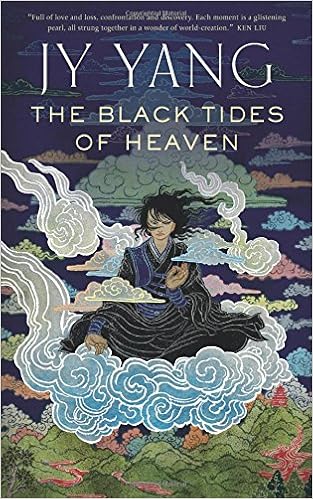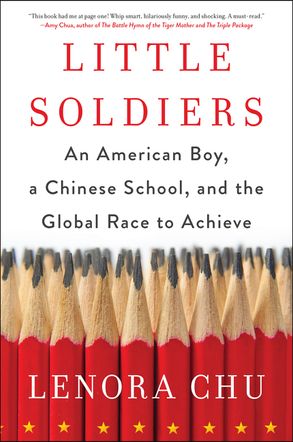I had it good. Real good...until I messed up. That was about ten years ago now. I wish I could go back. But now I can't. If only there was a way to fix that huge mistake.
I met him while I was in high school. He was studying at a local college to work in the video game industry. He was passionate and multitalented. Aside from video games, his interests included sewing, sculpting and legos. He sewed all the suits he wore to church and his dorm was crowded with both clay and lego sculptures. Yet, it was organized. Neat and tidy was the way he was.
When I graduated high school, I went to the same college as him. Somebody had suggested that I joined the college's video game club. That's how I got to know him. I made a few good friends at the club. But I lost all of them except one. I don't even have him anymore, but at the time we were all good friends. They used to be my favorite people with whom I played games with and we were very close. At first, we would just talk about the games. Gradually, we would talk about school, family friendships, tv shows and even our own personal problems. He, out of all of them, was the one in whom I felt was most similar to me. We seemed to like almost the same things. The same books, movies, topics, you name it. We seemed alike in almost every way.
One day, he decided to have a movie/game night at his house during one of the holiday breaks. He invited me and the rest of his friends to come. At his house, his family was nice and we had a dinner of barbecue ribs, tacos, chips, pizza, mac and cheese, veggies, potato salad and desserts. Come to find out, he actually helped his parents cook the dinner. I was impressed to see a college boy who could cook. He even gave me cooking tips! I enjoyed the time at his house so I asked if I could come again. And so he invited me.
We started hanging out more and more and soon, we were dating. We had a great time together and he became my favorite person to hang out with. He shared everything with me including his deepest thoughts. We met each other's families, friends and associates. Soon his family felt like my family and my family felt like his. Of course, we would talk about our futures. He would talk about the gaming industry and I would talk about my career. He even proposed that I helped him self publish a game. And so the project was started.
For the first few weeks, progress was slow since he could only afford a few minutes a day to work on it. With his self discipline, he somehow found more time despite going to college, working a job, and doing an internship. But my level of persistence with this project foreshadowed the future of our relationship.
Sometimes, we would talk about how our lives would be like if anybody ever married us. This included whether or not we wanted kids, if we wanted to buy a house, and all the other things we thought were related to marriage. It took two years of dating before he finally said he was cosidering proposing to me. I told him I would marry him If he decided to do so. But he said he would think while longer. A while longer turned out to be a few months. Within that time, he graduated from college and got an entry level job in the gaming industry. The job was not prestigious, but it was enough for him to live in an apartment by himself.
Meanwhile, I was getting increasingly irritated at my parents. They would upset me often and frequently. I literally believed I couldn't take it anymore and that's one of the reasons I said yes to him.
He wanted to wait until after I got out of college before marrying him, but I managed to convince him to do it earlier. He graduated two years before I was going to and I didn't want to wait that long. If I was not so determined to leave my parents house, I likely wouldn't have pushed to have the justice of peace so early. My parents urged me to wait a few years since they believed I needed some "growing up" before actually being ready for such a move. Of course, they couldn't stop me. So two months after he moved into the apartment, we got married. By the third month, I had completely moved in with him.
We were doing good for a bit after that. My new husbands income was enough to support the apartment so I was able to attend college full time like I had when I was still living with my parents. My husband insisted that I worked a part time job for the sole purpose of saving money. He wanted this money for three things: emergencies, a small house, and his in progess video game. I agreed, but I did not succeed at giving him what he wanted.
He and I continued to be close, but this gradually start to change. First, he would stop cooking dinner for the both of us, and would only cook for himself. I was annoyed at this. "I consider you when I make stuff!"
"You don't 'make' anything," he said. And continued doing the same thing. As time went on, he would slowly stop talking to me about his projects even though he was still working on them. He made much progess, but he struggled to do it by himself. I would help him...sometimes but I wasn't helping enough. So I stopped directly helping him and told him that when I get a part time job, I would use the money to fund his projects.
The arguments came next. He would complain that I didn't appreciate anything. This made me feel that nothing was good enough for him at the time. What I didn't realize was that he was right. I was being ungrateful. I was going to college full time and didn't have to work. All I had to do was keep my grades up and do domestic work. I searched for a part time job, but the one I got was not of my own doing. My mother convinced the managers to give me that job. My husband was unhappy when I quit. I thought the job was hard despite the fact that I was only there a very short time. My husband said I quit out of laziness. He knew this because of the way I handled the apartment. My dinner cooking was reserved to quick to make stuff and my cleaning was done with partial effort. He began complaining about this as well as the fact that I wasn't helping him enough with his projects. Most of his complaints reciprocated the problems I had with my parents. The only difference was that he was worse at it. He was more bold and frequent with his protests whereas my parents were more indirect and less complain less often. Instead of working to improve myself, I would complain to my friends about him.
After a year of marriage, I told my parents I wanted a divorce. They told me to let them know when I made my final decision. I filed for a divorce and was back at my parent's house within a month. What I didn't expect was for them to tell me "I told you so". It was especially embarrassing since they new that I divorced him because he had the same problems with me that they had. They said that I was lazy, inconsiderate, and unappreciative. They also said if i had done things differently, I would have never divorced. Worst of all, they were right. I had lost a good husband over my own actions. I realized my error after I graduated. It was too late. What goes around comes around. I had lost both him, and several of my friends. And I can never fix it. I hope no one else makes the same mistakes as me.
This short story was originally posted on goodreads for a short story competition.







